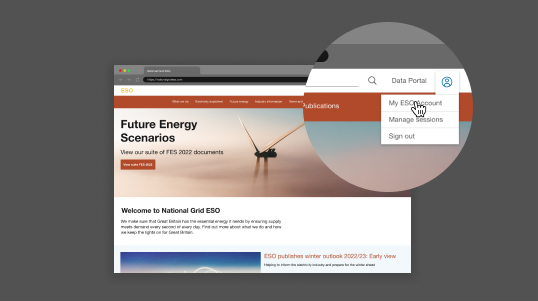Energy articles
View our recent Thought Pieces written by our team of Insight Leads exploring a range of subjects in greater depth.
Consumer flexibility in FES and how it is changing
In this article, we consider the importance of consumer flexibility in reaching net zero, as well as how Demand Side Response (DSR) services can benefit both consumers and the ESO. With the launch of the Demand Flexibility Service (DFS) in November 2022, consumers have been able to engage with the energy transition in an entirely new way.
A week in the life of a net zero carbon electricity system in 2035
This article details how a net zero carbon system could be operated and what is happening within our hourly dispatch modelling. We also hosted a webinar on this article in March 2023.
In this article, we explore how consumer behaviour plays a vital role in our transition to Net Zero. By considering the different types of consumers across the UK, we can ensure that the journey to Net Zero is fair for everyone.
Electricity storage is vital for the transition to a net-zero system by 2050. In this article, we explore the current landscape and the potential future credible pathways of electricity storage to 2050.
This new thought piece builds on the first one published in December and continues to explore our heat decarbonisation modelling. We also present the main drivers for regional variations in low carbon heating technology deployment between now and 2035.
Data centres are energy intensive and very important to the digitisation of society and the establishment of a smart energy system. In this article we explore the current landscape and the future potential for growth.
10 years of Future Energy Scenarios
In this article, Dan Murrant Insight Lead from the team, takes a look back at the last 10 years of Future Energy Scenarios in terms of the scenarios modelled, its interaction with policy and how the future view of some technologies has evolved.
This thought piece builds on our previous publication exploring our heat decarbonisation modelling and introducing our new regional heat model, as well as explaining in more depth the assumptions that were presented in our FES 2021 publication.
In this article, we introduce our new Regional Heat Model and explain both how this moves forward our analysis of heat decarbonisation options and what this means for FES 2021
Considering the changes which consumers – and all of society – will need to make to reach net zero and how this will impact the energy system.
Exploring the role of negative emissions in meeting net zero.
Exploring the options for heat decarbonisation and their implications for electricity and gas system operation
What does net zero mean for the energy system?
Introducing energy system flexibility, what is it and why do energy systems need it?















